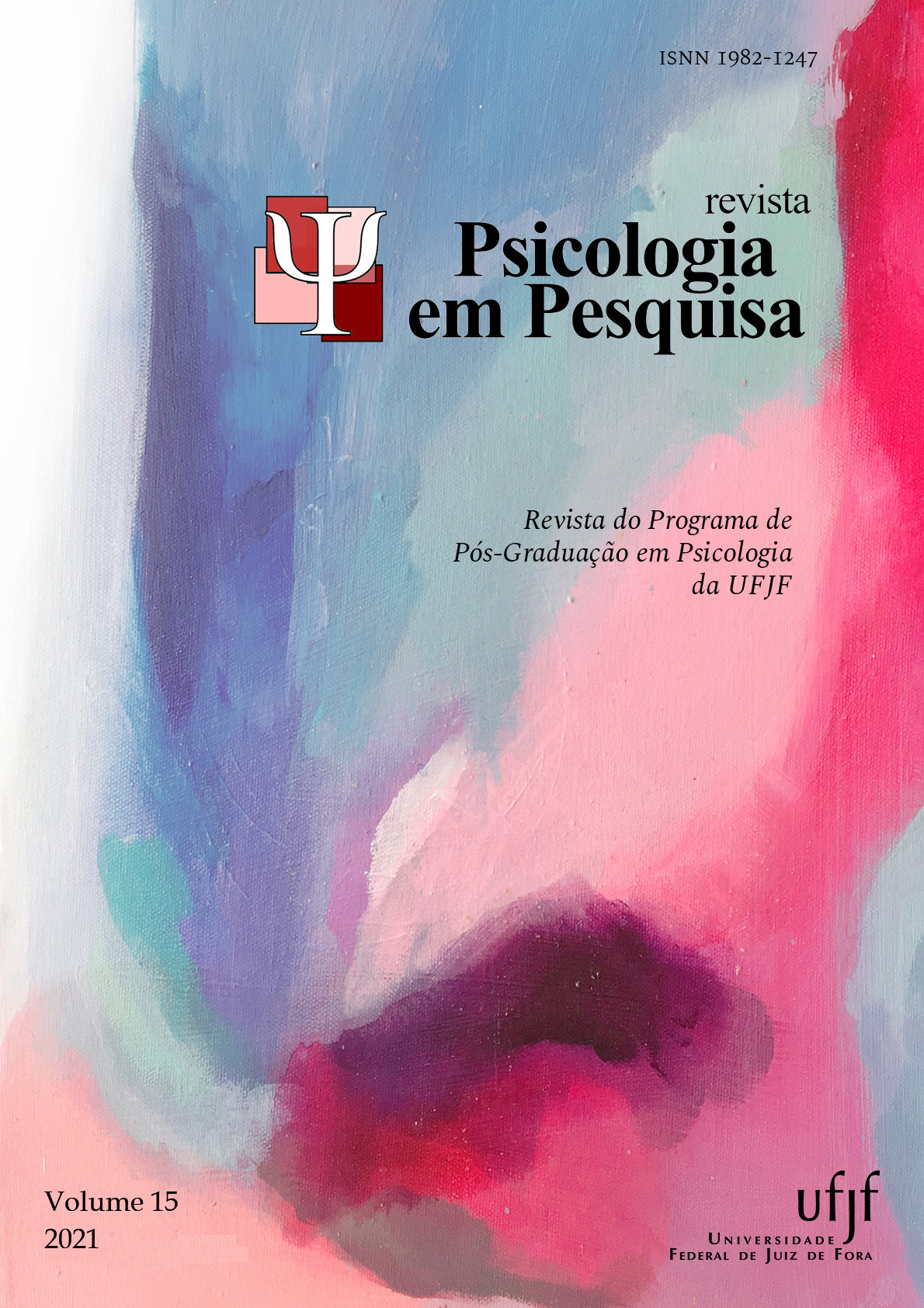Correlation between personality traits in parents and symptoms of autism in children
DOI:
https://doi.org/10.34019/1982-1247.2021.v15.29385Palavras-chave:
ASD, Parents, Personality traits, ADHD, HyperactivityResumo
Parents of children with autism spectrum disorder may be more likely to have a mental disorder, both due to genetic and environmental reasons. A cross-sectional study involving 161 children, 161 mothers and 108 fathers. Diagnosis followed the criteria established in DSM–5. Symptom severity was evaluated using the Childhood Autism Rating Scale. The Factorial Personality Inventory served to evaluate parents’ personality traits. Several correlations were found between mothers and fathers personality traits and children symptoms. In both parents, personality traits associated with greater intransigence/less flexibility and fewer social skills were those associated with more severe autism symptoms in the children.
Downloads
Referências
Araújo, R.M, (2008) Factorial structure analysis of the Factorial Inventory of Personality – FIP. Universitas: Ciências da Saúde 2, 1-151.
Bernier, R., Gerdts, J., Munson, J., Dawson, G., Estes, A. (2012) Evidence for broader autism phenotype characteristics in parents from multiple-incidence autism families. Autism Research 5, 13-20.
Bishop, D.V., Maybery, M., Maley, A., Wong, D., Hill, W., Hallmayer, J., (2004). Using self-report to identify the broad phenotype in parents of children with autistic spectrum disorders: a study using the Autism-Spectrum Quotient. Journal of Child Psychology and Psychiatry 45, 1431–1436.
Bolton, P., Macdonald, H., Pickles, A., Rios, P.A, Goode, S., Crowson, M., Bailey, A., Rutter, M., (1994) A case‐control family history study of autism. Journal of Child Psychology and Psychiatry 35, 877-900.
Bouchard, T.J Jr, McGue M., (2003) Genetic and environmental influences on human psychological differences. Journal of Neurobiology 54, 4–45.
Cannone, L.A., Menezes, A.E., Rocha, L.A., Merelles, S.L., Coelho, M.T., Pondé, M.P. (2017). Mothers’ personality and severity of autism spectrum disorder symptoms in children.Revista Psicologia, Diversidade e Saúde 6, 66-73.
de Guzman, M., Bird, G., Banissy, M. J., & Catmur, C., (2016). Self–other control processes in social cognition: from imitation to empathy. Phil. Trans. R. Soc. B, 371(1686), 20150079.
Hurley, R.S., Losh, M., Parlier, M., Reznick, J.S, Piven, J., (2007). The broad autism phenotype questionnaire. Journal of Autism and Developmental Disorders 37, 1679-1690.
Kose, S., Bora, E., Erermiş, S., Özbaran, B., Bildik, T., Aydın, C., (2013). Broader autistic phenotype in parents of children with autism: Autism Spectrum Quotient – Turkish version. Psychiatry and Clinical Neurosciences 67, 20–27.
Machado Junior, S.B, Celestino, M.I, Serra, J.P, Caron, J., Pondé, M.P. (2016). Risk and protective factors for symptoms of anxiety and depression in parents of children with autism spectrum disorder. Developmental Neurorehabilitation 19, 146-153.
Murphy, M., Bolton, P.F, Pickles, A., Fombonne, E., Piven, J., Rutter, M. (2000). Personality traits of the relatives of autistic probands. Psychological Medicine 30, 1411–1424.
Narayan, S., Moyes, B., Wolff, S., (1990) Family characteristics of autistic children: a further report. Journal of Autism and Developmental Disorders 20, 523-535.
Pasquali, L., Azevedo, M.M, Ghesti, I., (1997) Inventário Fatorial de Personalidade: manual técnico e de aplicação. Casa do Psicólogo: São Paulo.
Piven, J., Folstein, S., (1994). The genetics of autism. In The neurobiology of autism (ed. M. Bauman and T. Kemper), pp. 18-44. Johns Hopkins University Press: Baltimore.
Piven, J., Palmer, P., Jacobi, D., Childress, D., Arndt, S., (1997). Broader autism phenotype: evidence from a family history study of multiple-incidence autism families. American Journal of Psychiatry 154, 185-190.
Ruta, L., Mazzone, D., Mazzone, L., Wheelwright, S., Baron-Cohen, S. (2012). The Autism-Spectrum Quotient - Italian version: a cross-cultural confirmation of the broader autism phenotype. Journal of Autism and Developmental Disorders 42, 625–633.
Schopler, E., Reichler, R., Renner, B.R. (1988). The Childhood Autism Rating Scale (CARS). 10th ed. Western Psychological Services: Los Angeles.
Santiesteban, I., White, S., Cook, J., Gilbert, S. J., Heyes, C., & Bird, G., (2012) Training social cognition: from imitation to theory of mind. Cognition, 122(2), 228-235.
Sung, Y.J, Dawson, G., Munson, J., Estes, A., Schellenberg, G.D, Wijsman, E.M. (2005) Genetic investigation of quantitative traits related to autism: use of multivariate polygenic models with ascertainment adjustment. American Journal of Human Genetics 76, 68-81.
Wheelwright, S., Auyeung, B., Allison, C., Baron-Cohen, S. (2010). Defining the broader, medium and narrow autism phenotype among parents using the Autism Spectrum Quotient (AQ). Molecular Autism 1, 10.















